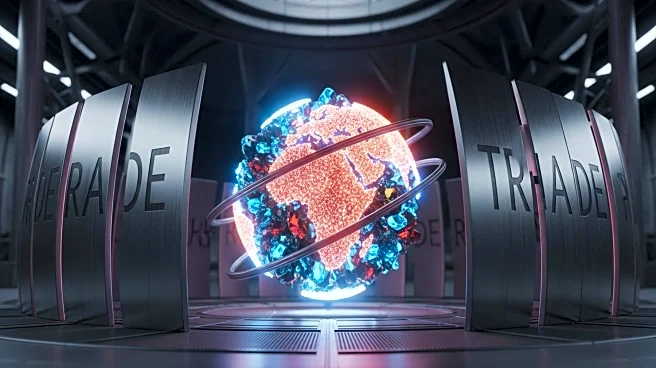What is the story about?
What's Happening?
China has announced new export controls on rare earth materials, citing the need to strengthen its export control system and safeguard global peace and stability. These measures, effective from October 9, require foreign entities to obtain licenses for exporting products containing more than 0.1% of domestically-sourced rare earths. The controls also cover related intellectual property and technologies, with applications for items potentially used in military purposes being denied. In response, President Trump announced new tariffs of 100% on imports from China, effective November 1, and additional export controls on critical software. The Chinese Ministry of Commerce accused the U.S. of double standards, highlighting the extensive list of items under U.S. control compared to China's list.
Why It's Important?
The rare earth export controls by China and the subsequent U.S. tariffs underscore the ongoing trade tensions between the two nations. Rare earth elements are crucial for various industries, including defense and technology, making them a strategic asset in international trade. China's dominance in the global supply of these materials gives it significant leverage, which it has used in past trade negotiations. The U.S. tariffs and export controls are aimed at countering this influence, but they also risk escalating trade conflicts, potentially impacting global supply chains and market stability.
What's Next?
The upcoming meeting between President Trump and Chinese leader Xi Jinping could be pivotal in addressing these trade tensions. Both nations may seek to negotiate terms that could ease restrictions and tariffs, although the strategic importance of rare earths may complicate discussions. The global market will be closely watching for any agreements or further escalations that could affect supply chains and economic relations between the U.S. and China.















